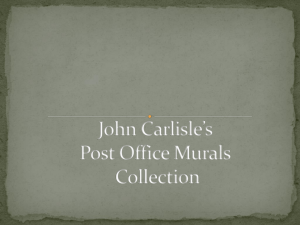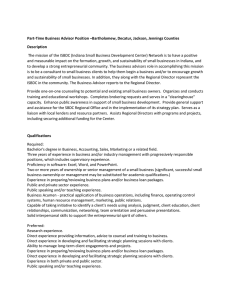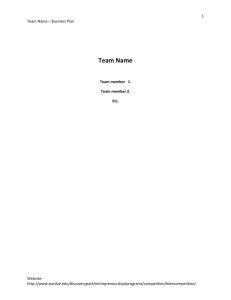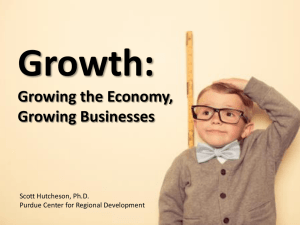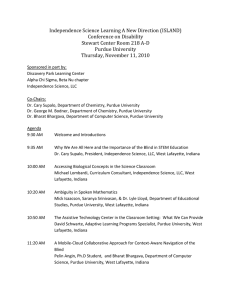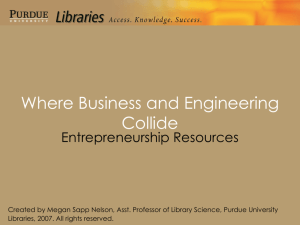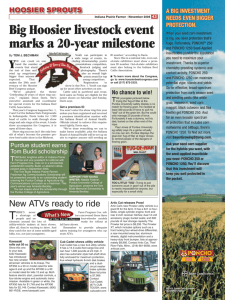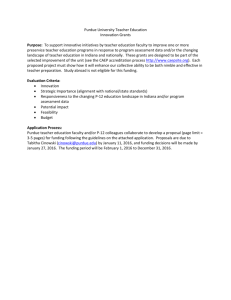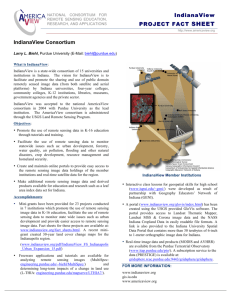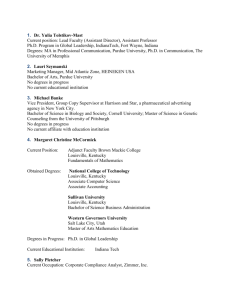Powerpoint - iGEM 2012
advertisement
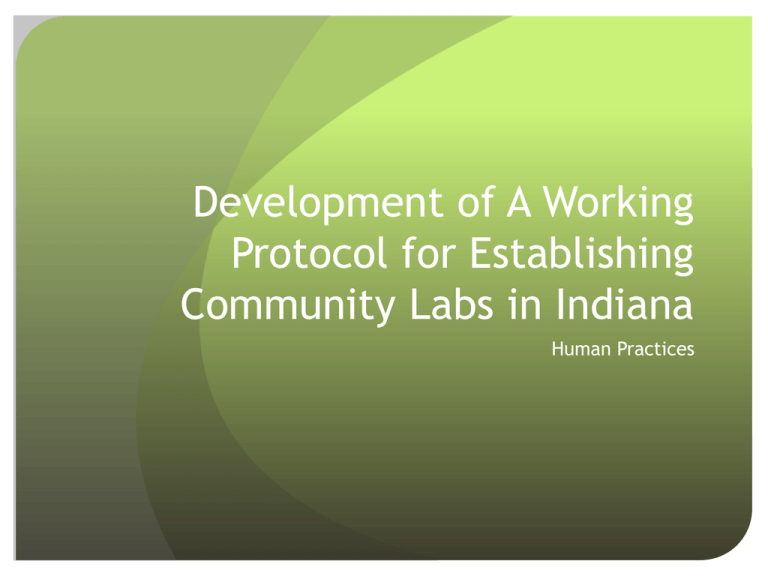
Development of A Working Protocol for Establishing Community Labs in Indiana Human Practices http://documentaryheaven.com/playing-god/ What is a Community Lab “we offer hands-on courses to the public, provide extracurricular experiences for students, and encourage scientific entrepreneurship, particularly in the fields of molecular and synthetic biology” “The best way to inform the dialogue about 21st century science is to have the stakeholders understand it from a hands-on perspective “ -Genspace The Manhattan Model Grassroots Science 12 staff members, including academic doctors, students, and other scientists Offers courses in biotechnology, intro to synth bio Projects in ecology, microbiology, forensics, synth bio Funding from donations, revenue from classes, lab rental What are the Benefits of a Community Lab Provides environment of academic innovation Fosters education the sciences Produce entrepreneurship and furthers the field of biotech Increase Indiana’s role in Biotechnology What are the Challenges of a Community Lab Funding Community Involvement Educated Personnel Community Regulations (e.g. bio-safety, etc.) Limited Material Resource How Can we Bring these Labs to Indiana? The Project Deliverables Concise and Understandable protocol for the establishment of Community Biotech Lab Present data on the effects and challenges of Community Labs Create a feasibility report for three sites in Indiana The wealthy, educated suburbs of Indianapolis showing the strongest growth in the state and having access to biotechnology resources are good starting points/models for site investigation/feasibility Considerations of Feasibility Commitment to: Researching regulations and protocols Interviewing and discussing with economic development officers of townships and Indiana Cities Gathering and presenting data in novel fashion Does it fit within the budget? Few actual expenses beyond transportation, office supplies Who are the Contacts we Need to Investigate Feasibility Purdue Office of Entrepreneurship Genspace and collaborative partners (e.g. DIY biotech) Economic Development Offices of prospective sites Purdue/IU/ND synthetic biology/microbiology teams (technical contacts) Practical Limitations to a Community Lab • • • • • Adequate Funding Sources (Corporate Sponsorship) Target Audience Too much Risk Intellectual Property Rights Sustainabiltity BioMakers Human Practices The Project - Focus on Educational Outreach o o o Field Trips Teacher Workshops Open Space for High School iGEM Teams -Collaboration with Children's Museum Benefits of Focus on Educational Outreach • • • • Long Term Funding: • NSF Grants Available Purdue Branding Purdue Extension • Curriculum with Education and Science Majors Targeted Audience Where We Are/The New Path Develop a feasibility report for a collaborative Purdue Education Extension Lab - Look for Industrial/Educational Partners - Discuss marketability with BioBuilder HighSchool workshop - Interview Teachers and Students Metrics • • • • • How many kids decide to enter STEM Majors How many kids come to Purdue Test Scores Teacher and Student Feedback Traffic/Demand Mobile Lab Static Lab BioBuilder 3-5 High School Students Campus Tours Wet Lab Personal Prospective Brainstroming
